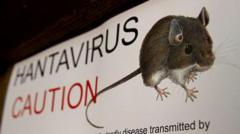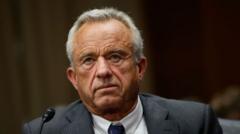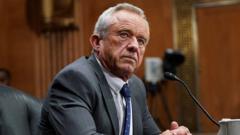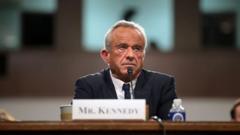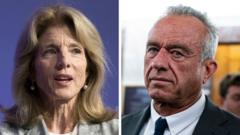The Advisory Committee on Immunization Practices (ACIP) has been restructured by RFK Jr., as he replaces former members with vaccine skeptics, sparking debates on the safety and efficacy of established vaccination schedules for children.
RFK Jr. Assembles Controversial Vaccine Advisory Panel to Review Child Immunization

RFK Jr. Assembles Controversial Vaccine Advisory Panel to Review Child Immunization
The newly appointed members of the vaccine advisory committee under Health Secretary Robert F. Kennedy Jr. are set to examine long-standing vaccination protocols for children amid significant public health concerns.
The newly appointed members of the Advisory Committee on Immunization Practices (ACIP) are preparing to reassess decades-old immunization schedules for children and teenagers, following a significant shake-up led by U.S. Health Secretary Robert F. Kennedy Jr. This reconfigured panel met for the first time on Wednesday after Kennedy dismissed the previous committee, comprising all 17 members, on June 9, in a move that has raised alarm among public health officials and advocates.
Kennedy’s selection of the new members, including some who are known critics of vaccines, has been met with skepticism regarding their qualifications. The ACIP plays a crucial role in recommending vaccination guidelines to the Centers for Disease Control and Prevention (CDC).
In the inaugural meeting, Dr. Martin Kulldorff, the new chair, shared his personal experience of being terminated from his professor position at Harvard due to his refusal to receive a COVID-19 vaccine. He announced that the panel would create working groups to review immunization schedules, including controversial aspects such as the administration of hepatitis B vaccines to newborns, which are typically considered safe and effective in preventing severe liver infections.
The proposed examination of vaccines that have been licensed for over seven years has sparked concerns, as experts worry this may imply a critique of their efficiency and safety mechanisms. Harvard epidemiologist Bill Hanage expressed disbelief at the rationale behind this review, emphasizing confidence in the past approval processes.
Originally, the committee was slated to vote on recommendations for a vaccine targeting RSV in infants, but this agenda has been delayed. The upcoming session will also include discussions on thimerosal, a mercury-based preservative that has been largely phased out of vaccines for years, led by Lyn Redwood. Redwood is associated with Children’s Health Defense, an anti-vaccine group formerly headed by Kennedy.
Criticism of Kennedy's changes has come from various quarters, including Senator Bill Cassidy, a declared skeptic regarding Kennedy’s vaccine policies. Cassidy voiced concern on X about the panel's composition, describing many appointees as lacking significant experience in key areas of vaccine research and expressing fear that preconceived biases could hinder the effectiveness of the committee's work.
As the battle over vaccine policies continues, the implications of Kennedy's choices will be a point of contention for health professionals and the broader public concerned about vaccination safety and efficacy.








